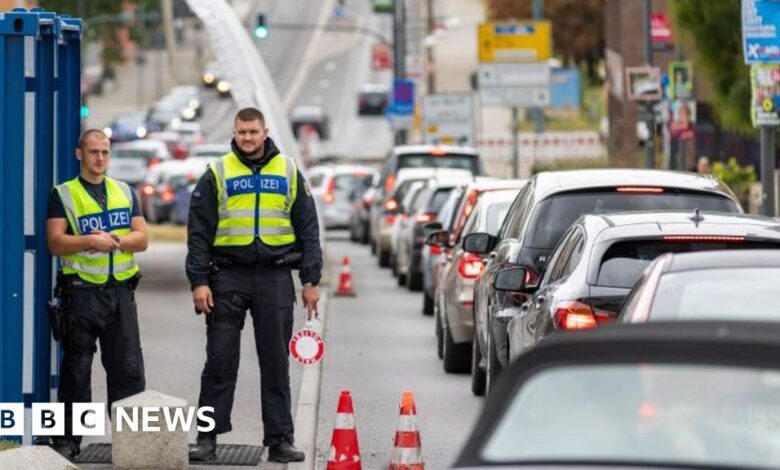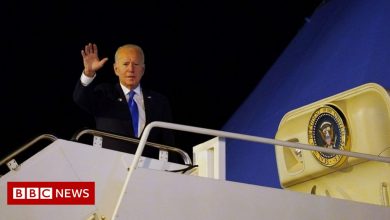Neighbors criticize Germany’s move to expand border controls

Polish Prime Minister Donald Tusk has condemned Germany’s decision to temporarily extend controls to its entire land border as part of its response to illegal migration as “unacceptable”.
He is one of several figures from neighbouring countries to criticise the move. Restrictions already in place at some of Germany’s land borders will be introduced from next Monday with France, Belgium, the Netherlands, Luxembourg and Denmark.
The head of the Dutch-German border community alliance said it was a “panic reaction”, while Austria’s interior minister stressed that they would not take in anyone rejected by Germany.
However, Germany’s conservative opposition argues that Berlin has not gone far enough.
The three parties in Chancellor Olaf Scholz’s government are under increasing pressure to respond to poor results in state elections in eastern Germany, where immigration is the biggest issue.
In Thuringia, the far-right Alternative for Germany party won its first election, and another election is due in less than two weeks in Brandenburg.
The debate over migration has exploded following the killing of three people at a festival in Solingen, western Germany, where a Syrian refugee who did not qualify for asylum and should have been deported was arrested.
The CDU/CSU conservatives initially said they would attend a migration summit of the government and state leaders on Tuesday, aiming to reach an agreement on next steps.
But they backed down, accusing the government of not taking seriously conservative proposals to turn away asylum seekers at the border.
“It is clear that the federal government is internally divided and cannot agree on effective measures,” CDU leader Friedrich Merz said.
Germany and all its neighbouring countries are part of the Schengen border-free area and follow European Union regulations. Temporary control measures are permitted “as a last resort” “exceptional circumstances” measures for a maximum period of six months.
German Interior Minister Nancy Faeser explained that the expanded controls would protect people from “the acute dangers posed by Islamist terrorism and serious crime”.
Under the plan she presented to Germany’s 16 states, police would check whether asylum seekers had sought protection in another EU country and quickly start deportation proceedings if they had.
However, the Polish prime minister left no doubt that the measures were taken due to “Germany’s internal political situation… and not because of our policy on illegal migration at the border”.
Poland has faced a wave of illegal migrants crossing its border with Belarus since 2021, which it sees as part of a “hybrid war” waged by both Belarus and Russia. Many migrants head to Germany.
Donald Tusk told a meeting of Polish diplomats in Warsaw that he would request urgent consultations with all affected countries.
European Commission spokeswoman Anitta Hipper said any reintroduction of border checks would have to be done in line with Schengen rules, so while Germany’s measures were feasible, “these controls must be necessary and proportionate”.
In Austria, where the far right is leading in opinion polls ahead of a September 29 election, Interior Minister Gerhard Karner said he had instructed the head of the police force not to take back anyone who had been rejected by Germany.
“There is no time,” he told the Frankfurter Allgemeine Zeitung.
The mayor of a Dutch border town, Joris Bengevoord, said the border with Germany had already suffered delays during the Euro 2024 football championship in the summer, when Germany introduced temporary border checks.
“At some border crossings, the waiting time is up to half an hour,” said Mr Bengevoord, chairman of the Euregio alliance of German and Dutch border towns.
Dutch shipping group TLN accuses Germany of undermining the Schengen agreement.
Some right-wing political leaders in the Netherlands take a different view.
“If Germany can do it, why can’t we?” asked Geert Wilders, whose far-right anti-immigration Freedom Party won last year’s Dutch election and is now part of the government. “In my opinion, the sooner the better.”
Dilan Yesilgöz of the centre-right liberal VVD party also liked Germany’s “super interesting” plan. She said it sent a message that the government wanted to be in control, even if the political symbolism itself did little to help.




